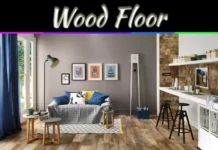If you are like many adults, you may have lived in at least a few homes over the years and experienced various kitchen challenges as a result. Through your past living situations, you may have a good idea in mind of what your dream kitchen should look like and the many features that you want it to have. Now that you are finally ready to bring your vision of a custom-built kitchen to live, you understandably want to ensure that all of your bases are covered. Many people who have been in your shoes have designed custom kitchens only to find out that they made serious errors along the way. By learning more about common mistakes that others have made, you can create a custom kitchen that lives up to your highest expectations.
Failing to Consider the Kitchen’s Functional Use
It is easy to lose yourself in the creation of a gorgeous kitchen and the selection of stunning materials. You understandably want your kitchen to look amazing, but remember that you and your family may spend many hours in this space each week preparing meals and perhaps enjoying meals together. You may also use this space to entertain. If your kitchen design is impractical, you may experience stress and frustration when you are preparing meals and using the space in other essential ways.
Minimizing the Significance of Counterspace
If you have a large area to work with, you may have no problem working ample counter space into your kitchen design. However, when square footage is limited, you may be inclined to reduce counter space to have space for a walk-in pantry, a large refrigerator or another feature. Counter space is essential for functionality. This is where the primary activity of the food prep takes place. It may also be where you store small appliances, such as a coffeemaker. If you entertain frequently, you may use some of the counter space as a buffet area. Counterspace also may be used for bar-style seating. This may be particularly important if your home lacks a breakfast room. Understanding your need for counter space and determining how you plan to use the space efficiently is essential. You must balance this with your need for storage space in the cabinets. Keep in mind that some layouts make more efficient use of the counter space than others.
Overlooking the Importance of Maintenance
If you are like many others, you may use your kitchen at least a few times each day to prepare meals and for other related purposes. This is a space that you understandably need to keep clean and tidy. Some materials are easier to maintain than others. For example, laminate counters are easy to clean with a wide range of products, but they can be damaged easily by heat and cutting. Granite and other natural stone surfaces will not show signs of damage in these ways, but they must be cleaned using soap and water rather than chemical products. These are only some of the many ways that your material selection may impact your regular cleaning chores.
Choosing Cheap Materials
You understandably want to accomplish great things with a limited budget. However, skimping on quality can backfire. For example, you may save money by choosing a granite slab countertop that is thinner than recommended for your custom kitchen. A thinner slab may not withstand rigorous use and may be more likely to get damaged in the future. Another example is if you use flimsy cabinets rather than solid wood cabinets. Solid wood costs more, but it may be much more durable over the long run.
Maxing Out Your Budget
While you should invest in quality materials for your kitchen renovation or construction project, you also need to work within your available budget. There may be numerous small items that you want to add to your kitchen as the project progresses, so it makes sense to add a contingency factor into your budget. It makes sense to have a reasonable budget available based on the scope of the project that you plan to complete.
Ignoring the Small Details
As important as it is to create a gorgeous kitchen design and selecting the right materials for your countertops, cabinets, flooring, and appliances, keep in mind that the small details are just as important in a custom kitchen. For example, you should have decorative yet functional light fixtures placed strategically throughout the kitchen. This may include task lighting and ambient lighting. The style of the accessories is just as important as the style of the cabinets. Likewise, the plumbing features and cabinetry hardware should receive ample attention as well. These small features can make a big statement about your kitchen’s style.
Not Looking Through a Buyer’s Eyes
When you are designing a custom kitchen, your focus understandably is on creating a space that lives up to your high expectations and that meets all of your functional needs. However, you will not remain in the house forever. Kitchens are critical selling points in any home, and your design decisions now may become significant factors when you try to sell your home in the future. Consider incorporating design features and making materials selections that have broad appeal. More than that, create a design that is in line with the overall style and value of your home.
These are all mistakes that others have made in the past when building a new home or planning for kitchen renovations in Brisbane. Some issues may have minor consequences, but others can impact your use of the space daily, the value of your home and many other dangerous factors. Keep each of these mistakes in the back of your mind as you design your custom kitchen so that you can avoid making these mistakes yourself.





